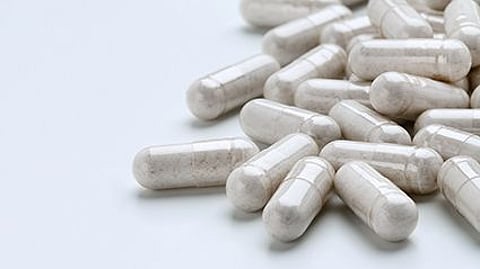TUESDAY, Dec. 19, 2023 (HealthDay News) -- Probiotics might be able to help people dodge the worst effects of COVID-19, new clinical trial results show.
Unvaccinated people who took a lactobacillus-laced probiotic had reduced COVID symptoms and even delayed infection, researchers report in the January issue of the journal Clinical Nutrition.
The study suggests probiotics could be a simple and inexpensive way to treat folks who’ve been exposed to COVID, researchers said.
Probiotics are designed to boost the beneficial bacteria and yeasts that live inside the body, primarily the gastrointestinal tract.
“Prior to COVID, there was strong evidence that probiotics were protective against respiratory infections,” said co-lead researcher Dr. Paul Wischmeyer, associate vice chair for clinical research in Duke Health's Department of Anesthesiology in Durham, N.C.
“Our study lends credence to the notion that our symbiotic microbes can be valuable partners in the fight against COVID-19 and potentially other future pandemic diseases,” Wischmeyer added in a Duke news release.
Researchers launched this investigation in March 2020, before COVID vaccines were widely available in the United States.
The team recruited 182 patients who were unvaccinated and had been exposed to someone with COVID, but had not yet developed any symptoms.
Half were randomly assigned to take a probiotic of Lacticaseibacillus rhamnosus GG, a bacteria that is naturally found in people’s digestive system. The rest took a placebo.
Participants who took the probiotic were 60% less likely to develop COVID symptoms than those who got a placebo – 26% versus 43%.
They also tended to stave off COVID infection longer, but the difference in COVID diagnosis rate – 9% in the probiotic group versus 15% in the placebo group – was not statistically significant because of the small study size.
Wischmeyer noted that probiotics are known to boost the immune system, decrease body chemicals associated with inflammation, and increase the lung’s protective barrier against infection.
“We are actually not surprised by these findings,” he said. “There have been several studies that have demonstrated the strong efficacy of probiotics against respiratory infections.”
“Other early studies have shown that probiotics may also enhance the effect of vaccines against other viral illnesses, such as influenza,” Wischmeyer added.
Probiotics could be of particular usefulness in lower-income countries where vaccination isn’t as available, as well as in regions of the U.S. where vaccine fatigue has caused lower uptake of COVID boosters, Wischmeyer said.
Fewer than 20% of the U.S. population has received the updated 2023 COVID vaccine, according to the U.S. Centers for Disease Control and Prevention.
More information
The Cleveland Clinic has more about probiotics.
SOURCE: Duke Health, news release, Dec. 18, 2023


